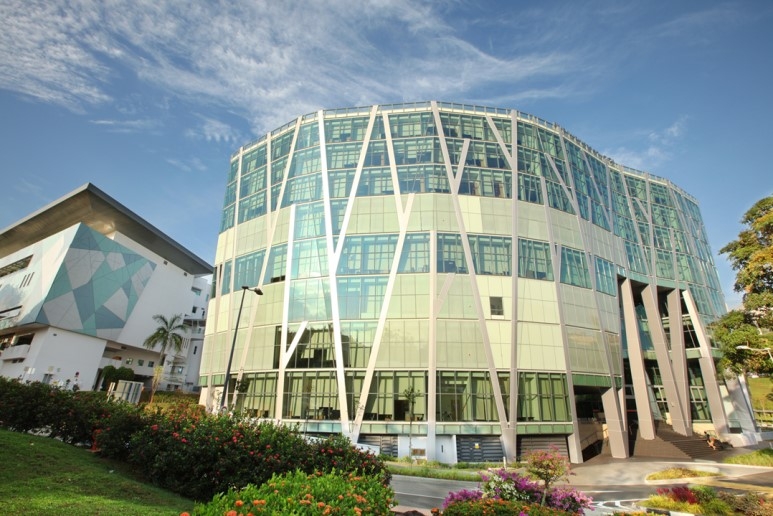뉴스
KUBS 소식
[Interview with AMBA Program Director Jaiho Chung] The Best Choice to Build Your Career in Asian Mar
2017.04.18 Views 6296 경영대학
Interview with AMBA Program Director Jaiho Chung
“The Best Choice to Build Your Career in Asian Market”
“The Best Choice to Build Your Career in Asian Market”
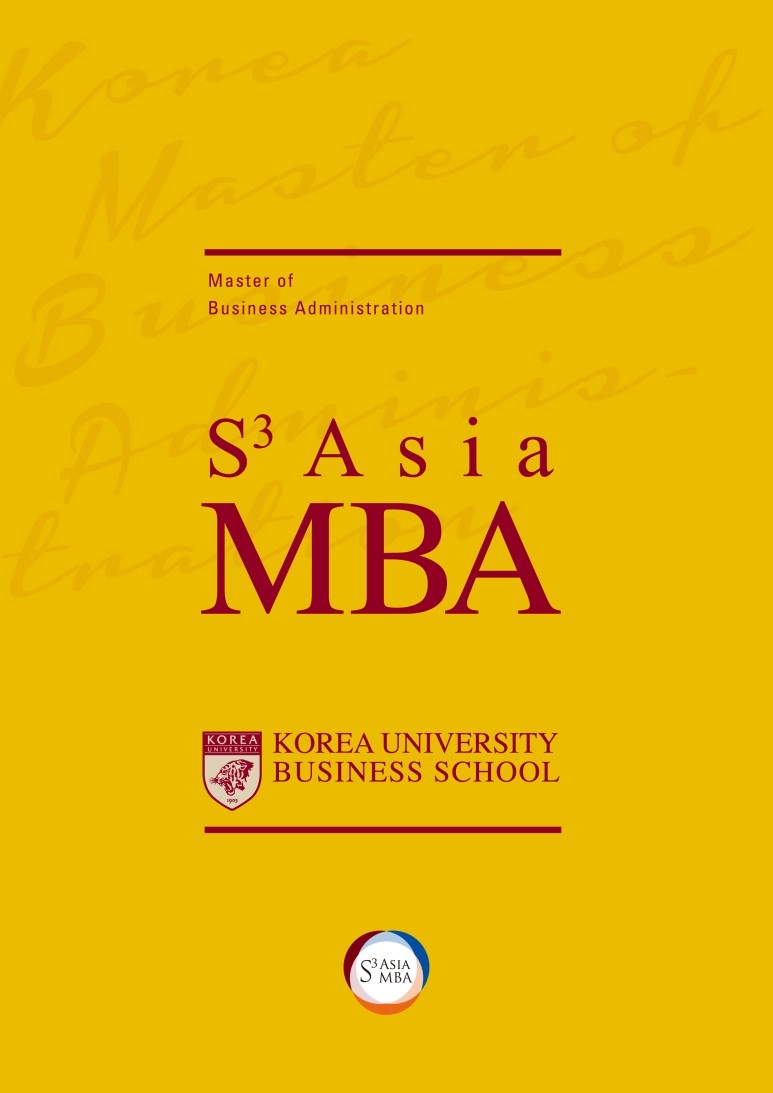 The S3 Asia MBA Program (AMBA) at Korea University Business School is an Asian-specialized MBA Program jointly operated by Korea University Business School, National University of Singapore (NUS), and Fudan University (Fudan). Established in 1905, all three universities have a long, unique history and known as the most prestigious universities in business education.
The S3 Asia MBA Program (AMBA) at Korea University Business School is an Asian-specialized MBA Program jointly operated by Korea University Business School, National University of Singapore (NUS), and Fudan University (Fudan). Established in 1905, all three universities have a long, unique history and known as the most prestigious universities in business education. To complete the program, students need to study at each university located in Seoul, Shanghai, and Singapore. For this reason, “S3 (S cube) Asia MBA” is named after the initials of the three cities. Not only Asian students from Korea, China, Singapore, India, etc. but also European students who are interested in the Asian market are enrolling the AMBA. As students can study in the major cities of the Asian economy while experiencing its local market and culture, the AMBA is the best choice for those interested in Asian business.
We would like introduce the benefits of the AMBA through the interview with Professor Jaiho Chung, who is Program Director of the program. “If you want to pursue an MBA overseas and use it in your career, you need to think about which of the two regions — America and Asia — will be beneficial to you,” Professor Chung said. “The AMBA is the most advantageous program for those who wish to continue their career in Asian markets, such as Singapore and Hong Kong.”
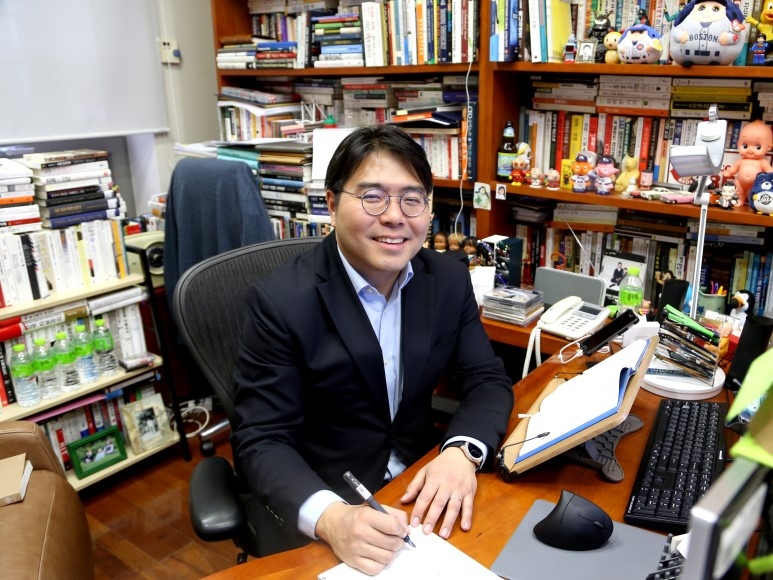 Please briefly tell us about yourself.
Please briefly tell us about yourself. I have been serving as Program Director of the AMBA at Korea University Business School since 2016. I graduated from Seoul National University with a Bachelor’s degree in Economics and received my Ph.D. in Economics from Harvard University. I served as an Assistant Professor at the National University of Singapore from 2001 to 2007. Now, I teach International Finance and International Business at Korea University Business School since 2007.
You have been Program Director of the AMBA since last year. Please briefly explain about the AMBA.
The AMBA aims to train business experts specialized in Asia. It is suitable for experiencing and understanding local culture because you get to study in the three countries including Korea, Singapore and China for a year and a half. The program has a total of three semesters. During the first semester, you study basic business courses at Fudan University. Then, you take major course like Marketing Strategy Operation at Korea University. NUS offers strategic courses as well as many other electives.
Tell us about Fudan and NUS which jointly operates the AMBA with KUBS.
While the north of the Yangtze River has the Peking University, the south of the Yangtze River, where Shanghai is located, has Fudan University. Beijing is the center of Chinese politics, and Shanghai is recognized as the center of economy and culture. Fudan has about 120 full-time professors, and its Executive MBA Program is ranked 40th worldwide in the FT Rankings. The university is currently constructing the new buildings, so students entering next year can study in a better environment.
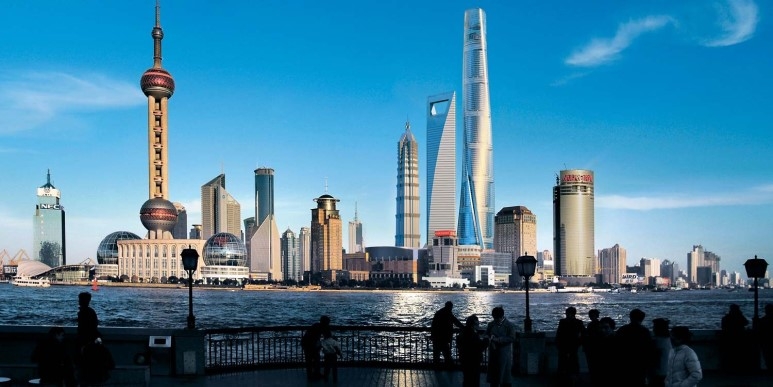
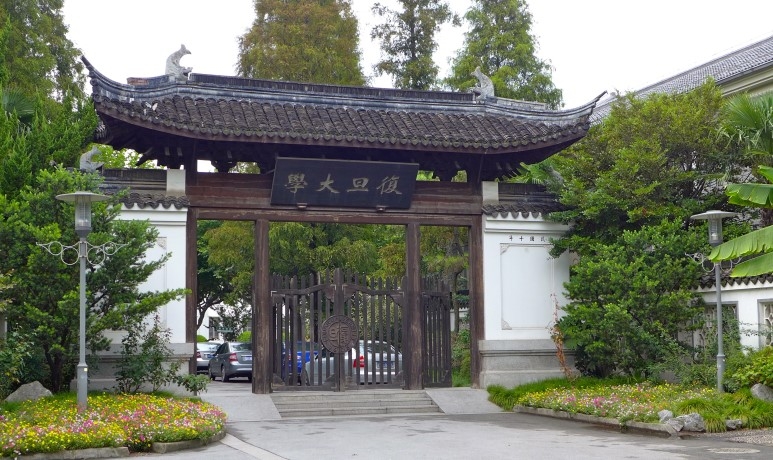
▲View of Fudan in Shanghai
NUS is the best in Asia, a prestigious business school ranking within the world’s top 10. The NUS Global MBA and Executive MBA are ranked 27th and 17th worldwide in the FT Rankings, respectively. NUS also has about 120 full-time professors and is well-known for having the world’s top 10 research capacity.
▲View of NUS in Singapore
You said the AMBA is jointly operated by the three schools. What degrees will students receive from the AMBA? What are the requirements for obtaining a double degree?
After successfully completing the curriculum, you can receive two degrees – one from your home university and another one from one of the two host universities. For example, if you are admitted to Korea University, you can earn an MBA degree from Korea University and another MBA degree from either Fudan or NUS. Although Fudan does not request additional requirements, you must have a GMAT score of 630 or higher to earn a double degree from NUS. You might think this score seems high but a two-year, full-time MBA program (4 semesters) at NUS requires at least 670. The AMBA has the benefit of earning a double degree with the relatively relaxed standards. In terms of the opportunity cost, you can complete the program within 1.5 years. Also, having the opportunity to move around the three cities sounds already appealing than staying in Singapore for two years, which could be a bit boring.
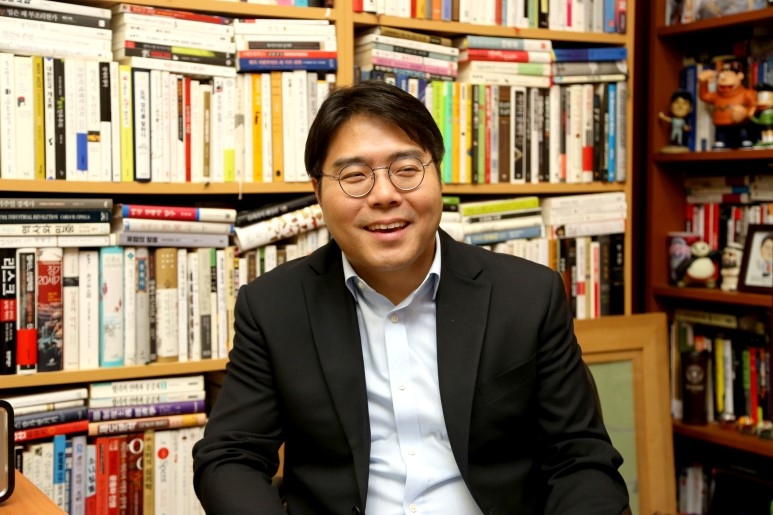
Tell us about the new student selection process of each university. What are the important qualities when selecting new students?
Each university selects students based on their nationality. Fudan selects students from △China, △Hong Kong, and △Macao, and NUS selects from South East and South West Asia including Singapore. KUBS selects Koreans and Japanese. American and European students will be selected by KUBS and NUS. All applications are evaluated based on an applicant’s specific career path and one's interest in Asia business. During the interview, it is important to talk about your ultimate goal, active attitude to maximize the effects of the MBA program, and specific plans after graduation.
Students will be studying in the three cities – Shanghai, Seoul, and Singapore – in the AMBA. How do they adapt to each city?
All students can stay in a dormitory at KUBS and Fudan. At NUS, students can live in the faculty dormitory, which is shared by three or four students, in front of the Main Gate. Some students choose to live off-campus and rent an apartment. Chinese, Korean, and Singaporean students will help you adapt to your new surroundings abroad. One of the great advantages of the AMBA is that you get to study abroad with your class every six months. So, you would feel like you’ve made a new family when you graduate.
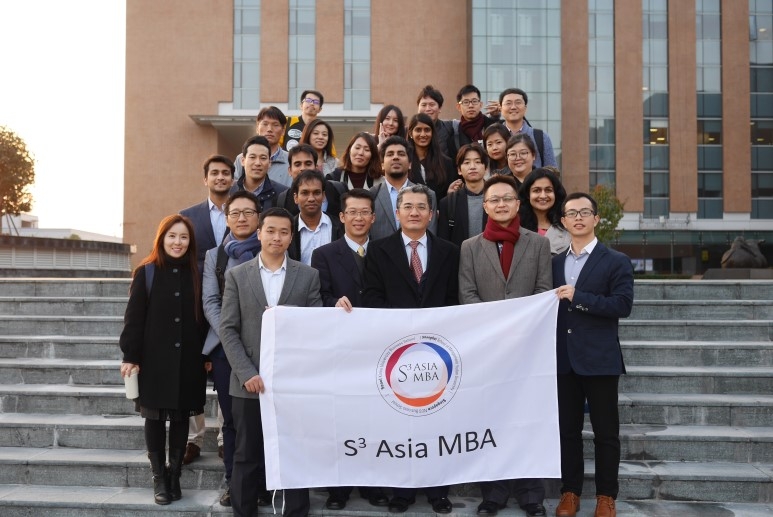
Career development is significant for students of a full-time MBA program. What services does the AMBA provide?
KUBS provides career services through its Career Development Center called Career Hub. In addition, NUS and Fudan run their own career development centers as well as providing career services along with the alumni network. In particular, NUS has 20 staff members of the Career Development Center who work with MBA graduates, so you can take great advantage of this career service. Also, if you are planning to get a job or running business in Asia, you can receive career services provided the three countries and utilize the alumni network.
As being Program Director of the AMBA for the past year, what are some strengths of the program?
In the past, MBA programs in the United States were popular. One of the reasons that students choose an MBA is because of their career. However, it is not easy for Asians to get a job in a western country after receiving an MBA degree in the U.S. and Europe. This is why more and more people want to complete an MBA in Singapore, Hong Kong, China, and other Asian regions, and find a position in Asia’s emerging markets. I believe the AMBA, which is an Asian-specialized program, is an excellent option to provide job opportunities in Asian markets. Another strength is that you can earn the most degrees within the shortest period of time. While the most full-time MBA programs run for two years, AMBA students can receive two degrees in a year and a half and build an effective career path.
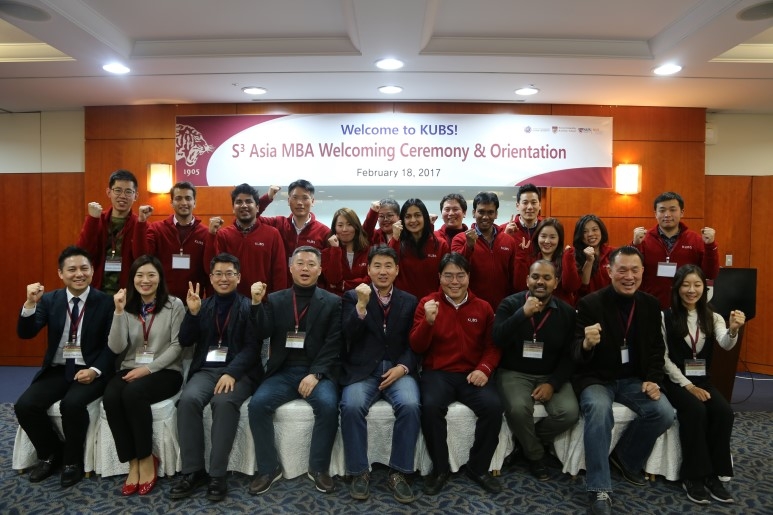
What areas and markets do AMB graduates mostly pursue?
AMBA graduates pursue in diverse areas. If students plan to get a job in Asian markets, they often spend their last semester in Singapore and stay there to look for a job. In addition, there were some cases where students continue their career in Indonesia, China, Hong Kong, etc. Most recently, one of the AMBA students got a position at Medytox, a pharmaceutical company in China. Moreover, many students who run their business in Asia are joining the AMBA. Some continue their business or develop a startup. The important thing is that you can get information about any areas you would like to pursue by using the network of the three universities.
Who gets the greatest benefits from the AMBA?
Those who want to build a solid network in Asia, such as China and India, will get the greatest benefits. A large-scale MBA program usually ends with a network consisting of only a handful people. The AMBA offers you the strongest network while traveling around the three cities with your class. Because of this, I strongly do not recommend this program to those seeking for a job in a conglomerate. Students who aim to advance into an Asian-centered global company or to start a business targeting Asian markets will be most satisfied.
AMBA graduates pursue in diverse areas. If students plan to get a job in Asian markets, they often spend their last semester in Singapore and stay there to look for a job. In addition, there were some cases where students continue their career in Indonesia, China, Hong Kong, etc. Most recently, one of the AMBA students got a position at Medytox, a pharmaceutical company in China. Moreover, many students who run their business in Asia are joining the AMBA. Some continue their business or develop a startup. The important thing is that you can get information about any areas you would like to pursue by using the network of the three universities.
Who gets the greatest benefits from the AMBA?
Those who want to build a solid network in Asia, such as China and India, will get the greatest benefits. A large-scale MBA program usually ends with a network consisting of only a handful people. The AMBA offers you the strongest network while traveling around the three cities with your class. Because of this, I strongly do not recommend this program to those seeking for a job in a conglomerate. Students who aim to advance into an Asian-centered global company or to start a business targeting Asian markets will be most satisfied.
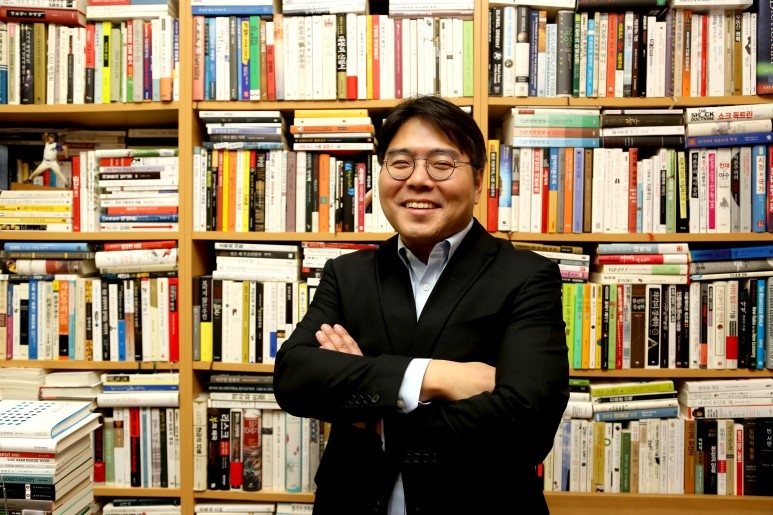
Do you have any words of advice for students looking to pursue the AMBA?
Since all AMBA courses are conducted in English, you must work with your English skills. Also, you can make the most valuable assets in the AMBA only if you set an ultimate goal after graduation and develop specific plans for the future.



